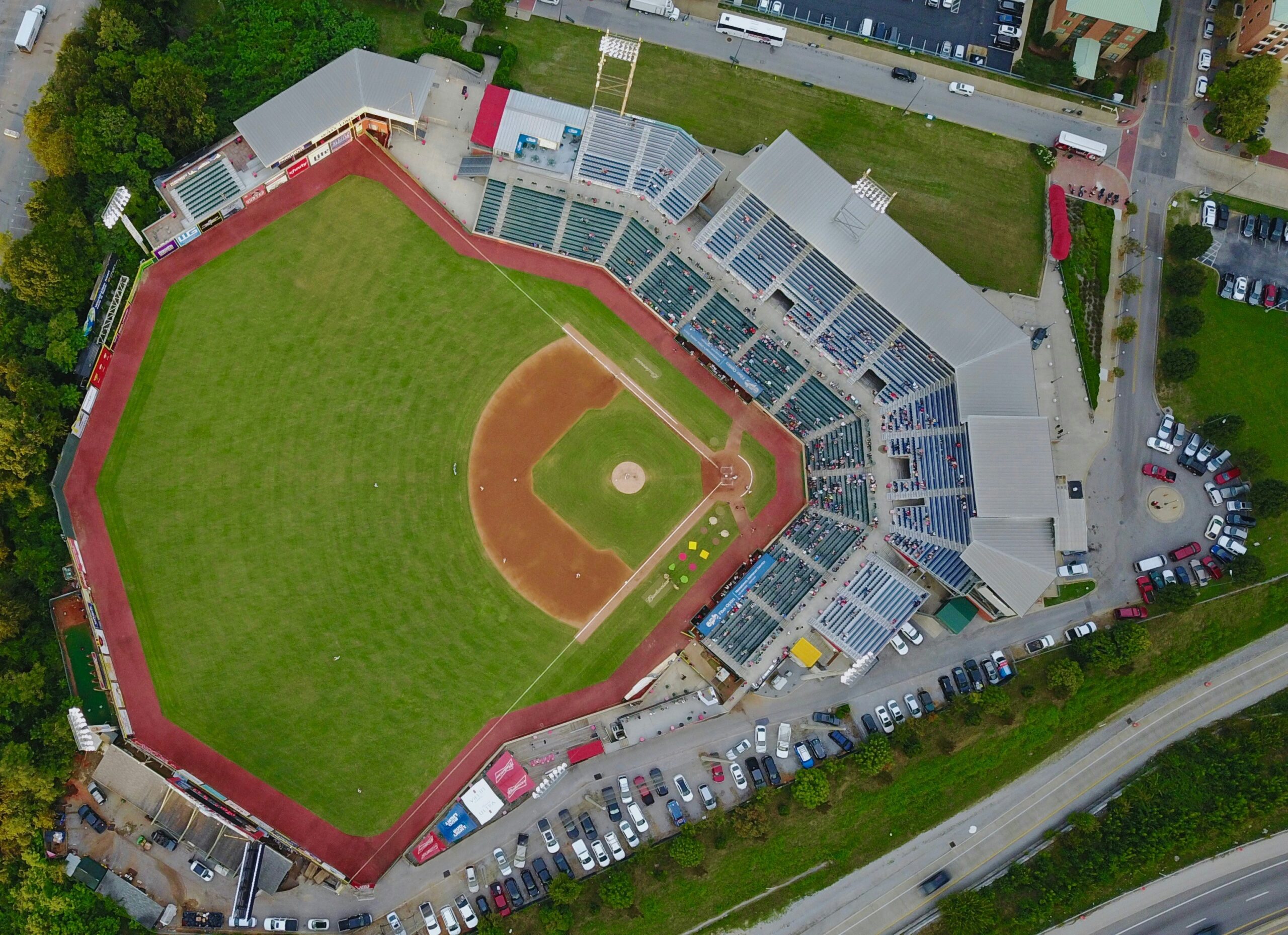A Historical Perspective
Baseball’s roots in Tennessee can be traced back to the late 19th century when the sport began to capture the American imagination. The establishment of local teams and leagues marked the dawn of Tennessee baseball, gradually embedding the sport into the cultural fabric of the state. One of the earliest milestones was the formation of the Nashville Vols in 1901, a minor league team that became a cornerstone of Tennessee’s baseball history. The Vols played a pivotal role in popularizing the game, drawing large crowds and fostering a sense of community among Tennesseans.
As the decades rolled on, Tennessee continued to produce noteworthy players who left an indelible mark on the sport. Figures such as Tim McCarver and Phil Garner emerged from Tennessee’s baseball heritage, achieving great success in Major League Baseball and inspiring future generations. Their achievements underscored the state’s ability to nurture talent and contribute significantly to the national baseball landscape.
In addition to individual accolades, Tennessee has witnessed significant events that have shaped its baseball narrative. The integration of African American players into professional teams during the mid-20th century was a transformative period, reflecting broader social changes within the state and the nation. Stars like Willie Mays, who played for the Negro Leagues’ Chattanooga Choo-Choos before joining MLB, symbolized this era of progress and inclusivity.
Baseball’s cultural significance in Tennessee extends beyond the professional realm. High school and collegiate baseball have thrived, with institutions like Vanderbilt University becoming powerhouses in college baseball. These programs have not only cultivated athletic talent but also reinforced baseball’s role in community identity and pride.
Today, baseball remains an integral part of Tennessee’s heritage. From local little leagues to the Nashville Sounds, the sport continues to unite communities, offering a shared experience that bridges generations. The rich history of Tennessee baseball is a testament to its enduring impact and the deep-seated passion that Tennesseans hold for the game.
Key Teams and Their Legacies
The landscape of Tennessee baseball is dotted with key teams whose legacies have shaped the sport within the state. At the collegiate level, the Tennessee Volunteers stand out prominently. Representing the University of Tennessee, the Volunteers have made significant strides over the decades, with numerous appearances in the NCAA tournaments and several College World Series berths. Their 1995 and 2021 seasons are particularly noteworthy, showcasing impressive team performances and solidifying their status as a powerhouse in college baseball.
In the realm of professional baseball, the Memphis Redbirds have carved a niche for themselves. As the Triple-A affiliate of the St. Louis Cardinals, the Redbirds have clinched multiple Pacific Coast League championships. Their 2018 season was especially remarkable, culminating in a Triple-A National Championship victory. The Redbirds’ consistent success has not only brought accolades but has also played a pivotal role in nurturing future MLB talents, thereby contributing significantly to the sport’s development within the region.
Another cornerstone of Tennessee’s baseball heritage is the Nashville Sounds. Established in 1978, the Sounds have become a beloved fixture in Minor League Baseball. The team’s history is rich with milestones, including their 2005 and 2019 Pacific Coast League titles. The Sounds have also been instrumental in providing a stepping stone for players aiming to make their mark in the majors, cementing their importance in the broader baseball framework.
These teams, through their achievements and contributions, have not only elevated the standard of baseball in Tennessee but have also fostered a deep-rooted community spirit and passion for the sport. Their legacies continue to inspire upcoming generations of players and fans alike, ensuring that the impact of Tennessee baseball resonates far beyond the state’s borders.
Notable Players from Tennessee
Tennessee has produced several notable baseball players who have left an indelible mark on the sport. One of the most celebrated figures is Todd Helton, a Knoxville native. Helton’s illustrious career with the Colorado Rockies spanned 17 seasons, during which he amassed over 2,500 hits, 369 home runs, and maintained a batting average of .316. His consistent performance earned him five All-Star selections, three Gold Glove Awards, and four Silver Slugger Awards. Helton’s legacy extends beyond his impressive statistics, as he has inspired countless young Tennesseans to pursue baseball.
Another prominent player is David Price, born in Murfreesboro. Price’s career highlights include winning the 2012 American League Cy Young Award and being named an All-Star five times. Known for his powerful pitching, Price has accumulated over 150 career wins and more than 2,000 strikeouts. His contributions have been pivotal to the success of teams like the Tampa Bay Rays, Detroit Tigers, and Boston Red Sox. Price’s journey from Tennessee to the major leagues serves as a beacon for aspiring pitchers from the state.
In more recent years, Mookie Betts, from Nashville, has emerged as a superstar in Major League Baseball. Betts, who plays for the Los Angeles Dodgers, has an impressive resume that includes being a two-time World Series champion, the 2018 American League MVP, and a five-time Gold Glove Award winner. Betts’ versatility and athleticism make him one of the most dynamic players in the game today. His achievements continue to elevate Tennessee’s reputation as a breeding ground for baseball talent.
The influence of these players extends beyond their on-field performances. Todd Helton, David Price, and Mookie Betts have each contributed to the growth of baseball in Tennessee through community engagement, youth mentorship, and charitable activities. Their success stories inspire new generations of athletes to dream big and work hard to achieve their goals in baseball and beyond. By setting high standards and exemplifying dedication, these Tennessee-born players have not only enriched the sport but have also fostered a legacy of excellence that resonates throughout the state.
Youth and Collegiate Baseball Landscape
The youth and collegiate baseball systems in Tennessee have become a cornerstone for nurturing and developing young talent. The state boasts a robust infrastructure of training programs and facilities that cater to aspiring baseball players from a very young age. Local leagues and community-supported teams provide a structured environment where young athletes can cultivate their skills and passion for the sport. These foundational years are critical, as they lay the groundwork for higher levels of competition.
At the youth level, numerous academies and clinics offer specialized training sessions, focusing on fundamental techniques such as batting, pitching, and fielding. These programs often incorporate advanced methodologies and state-of-the-art technology to ensure comprehensive athlete development. The emphasis on early skill acquisition and physical conditioning helps young players transition smoothly into more competitive settings as they grow older.
The collegiate baseball scene in Tennessee is particularly noteworthy. Universities and colleges across the state have established highly competitive baseball programs that serve as significant feeders into professional baseball. Institutions such as Vanderbilt University, the University of Tennessee, and Middle Tennessee State University are renowned for their rigorous training regimens and successful track records. These programs not only attract top-tier talent from within the state but also draw promising athletes from across the country.
Collegiate tournaments and intercollegiate leagues provide ample opportunities for players to showcase their abilities on a larger stage. Annual events and championships often see scouts and recruiters in attendance, seeking the next breakout star. The competitive atmosphere and high level of play contribute significantly to the development of student-athletes, preparing them for potential careers in Major League Baseball (MLB) and other professional leagues.
Overall, the youth and collegiate baseball landscape in Tennessee is a well-structured ecosystem that effectively supports the growth and advancement of young players. By investing in quality training programs and competitive opportunities, Tennessee continues to nurture the next generation of baseball talent, contributing to the sport’s enduring popularity and success in the state.
The Role of High School Baseball
High school baseball in Tennessee serves as a critical foundation for the development of future talents who aspire to make it to collegiate and professional levels. The state’s high school teams are not only breeding grounds for athletic prowess but also forge a sense of camaraderie and discipline among young athletes. High school competitions are fiercely contested, highlighting the high standards and competitive spirit prevalent in Tennessee’s baseball culture.
Several high school programs have established themselves as powerhouses, consistently producing top-tier talent. Schools like Farragut High School, with numerous state championships under their belt, and Christian Brothers High School, known for their rigorous training and coaching, have made significant contributions to the sport. These programs emphasize not only physical training but also the mental aspects of the game, preparing athletes for the pressures of higher-level play.
Key matches in the high school baseball calendar draw considerable attention, often becoming local spectacles. The annual showdowns between traditional rivals, such as the games between Brentwood High School and Ravenwood High School, attract large crowds and foster a deep sense of community pride. These events are more than just games; they are celebrations of local culture and talent.
Standout players from Tennessee high schools have made remarkable transitions to collegiate and professional baseball. Players like Tony Kemp, who graduated from Centennial High School and went on to play for Vanderbilt University before joining the Major Leagues, exemplify the high level of talent nurtured in Tennessee’s high school baseball programs. Their success stories inspire upcoming athletes and reinforce the importance of high school baseball as a stepping stone to greater achievements.
The community’s support for high school baseball in Tennessee is unwavering. Local businesses sponsor teams and events, parents volunteer tirelessly, and fans fill the stands, creating an environment that encourages young athletes to strive for excellence. This robust support network is integral to the sustained success and growth of high school baseball in Tennessee, ensuring that the sport continues to thrive and evolve.
Baseball Facilities and Infrastructure
Tennessee boasts a diverse array of baseball facilities and infrastructure that cater to both local enthusiasts and professional athletes. From community parks scattered throughout neighborhoods to state-of-the-art stadiums, the quality and accessibility of these facilities play a crucial role in the state’s baseball culture. Local parks often serve as the breeding grounds for young talent, offering well-maintained fields that are easily accessible to the public. These local facilities provide a vital space for community engagement, allowing families and fans to come together and support their local teams.
On a larger scale, Tennessee is home to several major stadiums that host both minor and major league games. Notable among these are AT&T Field in Chattanooga, home to the Chattanooga Lookouts, and First Horizon Park in Nashville, where the Nashville Sounds play. These stadiums are equipped with modern amenities, offering a professional atmosphere that enhances the spectator experience. Moreover, they frequently host national events, including tournaments and exhibition games, which bring significant attention to Tennessee’s baseball scene.
Recent developments in baseball infrastructure have further elevated the state’s standing in the sport. Upgrades to existing facilities and the construction of new ones ensure that Tennessee remains at the forefront of the sport’s evolution. These enhancements not only improve the quality of play but also attract higher caliber events and talent to the state. For instance, planned renovations at Smokies Stadium in Kodak aim to upgrade seating and amenities, making it a more inviting venue for both players and fans.
Community engagement is a key component of Tennessee’s baseball facilities. Local parks and major stadiums alike serve as hubs for social interaction, fostering a sense of unity and pride among residents. Economic impacts are also notable, as these facilities draw visitors and tourists, boosting local businesses and generating revenue. Whether through small-scale community games or large-scale national events, Tennessee’s baseball facilities are instrumental in promoting the sport and supporting the local economy.
Community and Fan Engagement
Baseball has established itself as a cornerstone of community life in Tennessee, fostering a robust fan culture that transcends generations. The support for local teams is palpable, with fans turning out in droves for games, donning team colors, and participating in a variety of activities that enhance their connection to the sport. This engagement is further amplified through numerous community events that bring fans and players together, creating an inclusive environment that celebrates the love of baseball.
Fan clubs play a pivotal role in nurturing this sense of community. These organizations facilitate deeper connections among baseball enthusiasts, organizing gatherings, watch parties, and other social events that keep the spirit of the game alive year-round. Meet-and-greet sessions with players provide fans with the unique opportunity to interact with their heroes, fostering a deeper emotional investment in the sport. Additionally, baseball clinics offer a hands-on experience, allowing young fans to learn from the best and cultivate their own skills, ensuring the sport’s legacy continues.
Social media and other digital platforms have revolutionized how fans engage with baseball in Tennessee. Teams and players actively use these channels to communicate with their supporters, sharing behind-the-scenes content, updates, and interactive opportunities that keep fans engaged even when they are not at the ballpark. These platforms serve as virtual communities where fans can discuss games, share their experiences, and celebrate their shared passion for baseball.
Community engagement initiatives are not limited to the digital sphere. Local baseball organizations frequently host events such as charity games, school visits, and community service projects, which not only promote the sport but also reinforce its role as a positive force within the community. These events underscore the symbiotic relationship between baseball and the community, highlighting how the sport contributes to the social fabric of Tennessee.
Overall, the engagement of the community and fans is a testament to the enduring appeal of baseball in Tennessee. Through a blend of traditional and modern approaches, the sport continues to thrive, bringing people together and fostering a vibrant, passionate fan base.
The Future of Tennessee Baseball
The future of Tennessee baseball appears promising, driven by a convergence of emerging talent, evolving training methodologies, and technological advancements. As the sport continues to grow in popularity across the state, there is a noticeable influx of young athletes demonstrating exceptional skills and potential. Local leagues and high school programs are nurturing this talent, providing a robust pipeline for college and professional teams. The University of Tennessee, for instance, has seen a remarkable increase in recruitment of top-tier players, indicating a strong foundation for sustained success in the coming years.
Technological advancements are playing a pivotal role in shaping the future landscape of Tennessee baseball. The integration of data analytics in player training and game strategy is becoming more prevalent. Coaches and trainers are leveraging sophisticated tools to analyze player performance, identify areas for improvement, and tailor training programs to individual needs. This data-driven approach is expected to enhance player development and elevate the overall quality of the sport within the state.
Moreover, changes in training methodologies are influencing how players prepare for the competitive demands of baseball. Emphasis is being placed on a holistic approach to athlete development, which includes not only physical conditioning but also mental resilience and strategic acumen. Specialized training centers and academies are emerging across Tennessee, offering state-of-the-art facilities and expert guidance to young athletes. These centers are critical in fostering a new generation of players who are well-rounded and equipped to excel at higher levels of competition.
Looking ahead, the prospects for upcoming seasons in Tennessee baseball are bright. With a solid infrastructure supporting youth and amateur baseball, and a growing appreciation for the sport, the state is poised to produce more elite players who could make significant impacts at national and international levels. As the baseball community continues to embrace innovation and adapt to new trends, Tennessee baseball is set to reach new heights, cementing its status as a key player in the broader landscape of American baseball.



